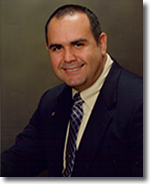
Sometimes it’s hard to see beyond what is in front of us. We see the tangible, physical stuff and we put faith in it. The intangible, invisible stuff – the stuff we cannot see seems less important to us because we don’t think it as real. In healthcare, when symptoms are present, we feel something. We go to the doctor to be treated for the symptoms with medication that is also real. And, we hope (expect) that what was prescribed will do the job of taking care of those real symptoms.
The intangible stuff produces results that are just as pronounced in our bodies. When I was in pharmacy school, I was taught that there are two distinct phases of treatment and they followed a certain order. The two phases are simply: Non-pharmacological (no drugs) treatment, and Pharmacological treatment. The non-pharmacological phase involves the intangibles (behavior and lifestyle modifications) to bring about changes to help remedy the unhealthy situation and it precedes the drug therapy. The pharmacological phase requires a “step-wise” approach to achieving a treatment goal.
In today’s rat-race, we seldom have the time to get the non-pharmacological treatment phase started. We jump right to the drug therapy to fix the problem. The quick fix is THE fix and the fix is not always a temporary one, but continues on indefinitely. Here are a few examples: Insomnia, acid reflux, anxiety, pain relief, constipation, allergies and others. While these can be chronic diseases, they usually start of as symptoms of an underlying problem that goes untreated or ignored. For example, I had a patient that needed her sleeping pill to go to bed every night. I asked her if she ever tried to go to bed without her medication, and she replied that this was impossible. She said that she was just too pre-occupied with things going on in her life to give her mind enough of a break for her drift off into sleep. So, instead of dealing with the “things” in her life, she is now addicted to sleeping pills. Another patient was in his third month of acid reflux medication when I asked him if he ever thought of tapering off. He replied that his job caused him so much stress that it began affecting his stomach and digestion. So, instead of learning to control stress and job-related anxiety, this patient chose to medicate because it works out for him better this way.
The issue I wanted to bring to light is that BOTH non-drug and drug therapies are important to each other to achieve long-lasting goals to restore normality to the body’s systems. If we choose to ignore one treatment approach for another, then all we are doing is cycling ourselves on a treadmill without end. The most obvious case in which patients can get off this perpetual cycling of drug treatment is in treating obesity and its complications. There are many cases in print where patients do what is necessary to lose weight and snap the cycle. After losing weight, the medication doses are reduced, and eventually stopped if the patient looses enough weight to warrant this therapeutic change.
So, if you want to make a positive change in reducing the amount and quantity of medications taken, then incorporate healthy life-style changes in addition to the physician’s medication regimen into your treatment plan. You will reduce the stress on your body’s systems to clear drugs from your body and save money too. This week, ask yourself if there is a life-style change that you can make to help yourself reduce a medication that you are taking. I look forward to seeing your reponses.
Until next time, be well.
Dion

